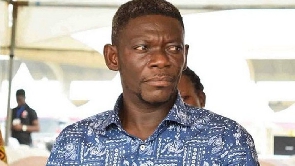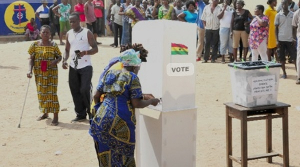- Home - News
- TWI News | TV
- Polls
- Year In Review
- News Archive
- Crime & Punishment
- Politics
- Regional
- Editorial
- Health
- Ghanaians Abroad
- Tabloid
- Africa
- Religion
- Election 2020
- Coronavirus
- News Videos | TV
- Photo Archives
- News Headlines
- Press Release
General News of Friday, 7 March 2003
Source: .
NRC reacts to NDC complaints
THE National Reconciliation Commission (NRC) has stated that the apprehensions of the National Democratic Congress (NDC) about the so-called window of opportunity and regime targeting are unfounded.
It said the commission does not select the cases to be heard along political or any other lines but rather the general order in which cases are filed and investigative reports are received and that every complaint brought before the commission is treated on its own merit.
“It is possible that military governments, particularly those that stayed in office for a long period of time, would register a larger number of complaints relative to short-lived civilian regimes,” it said.
This was contained in a response signed by Ms Annie Anipa, Director of Public Affairs of the NRC, to a memorandum of the NDC, to the commission on February 24, 2003.
It explained that investigative processes are enhanced when members of the public provide information for investigators and, therefore, urged the public, including the NDC, to furnish the NRC with any information that would assist it in its work.
“We wish to inform you that the commission is at the same time conducting institutional and thematic hearings, which will require input from both present and former public office holders and the public,” it stressed.
The statement said the commission is committed at all times to the principles of natural justice and procedural fairness and that in all cases in which the NRC has sufficient notice of a person to be mentioned, it makes strenuous effort to contact the person ahead of time.
It said this has not always been possible since some witnesses give further and better particulars only when they are on the stand.
“Whenever this has happened, contact has been made with the persons concerned and a verbatim transcript of the proceedings has been made available to them. An opportunity to cross-examine the witness has also been provided thereafter,” it explained.
In respect of the NDC’s complaints about Naval Capt (rtd) Baffour Assassie-Gyimah, Mr Peter Nanfuri and Lt Col Kusi not being present at the hearing of cases in which they were named, it said the procedure was followed as soon as the commission had notice of the need to contact them.
It said Naval Capt Assassie-Gyimah has already been offered an opportunity to respond to allegations made against him and that Mr Nanfuri and Lt Col Kusi will shortly appear before the commission.
It gave the assurance that the commission will continue to redress all concerns that need to be addressed.
The statement explained that the focus of the commission has been to establish in all cases whether the event occurred as alleged.
“The commission, in the process, has to determine the nature and pattern of the abuses and determine whether the abuses were carried out with the active involvement of public office holders,” it said.
It said persons who are mentioned as office holders without any specific allegations of abuses being made are not considered as requiring a hearing merely on the fact of having occupied that office.
It said apart from serving as an investigative tool aimed at assisting the fact-finding process, the public hearings are a means of facilitating and fulfilling the healing process of victims and perpetrators, stressing that “the commission has not made any findings yet. The findings will be contained in the final report that it will be presented to the President”.
The statement said to ensure that the commission remains focused on its mandated functions, procedures have been put in place.
It said in all cases, persons, whether alleged victims or alleged perpetrators, appearing for hearing are required to make a formal statement ahead of the hearing and that this affords the commission the opportunity to review the statement and determine its relevance to the commission’s mandate.
“It must be noted that the NRC is not a court in the sense that it is not out to determine whether a witness is guilty or not,” it stressed.
It said the commission, on the other hand, “is more concerned whether the event with which the persons are associated did occur and for this reasons, persons requested to respond only when they are named specifically as perpetrators”.










